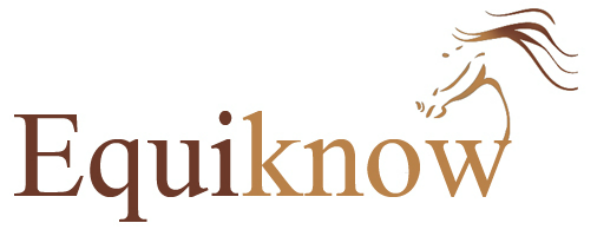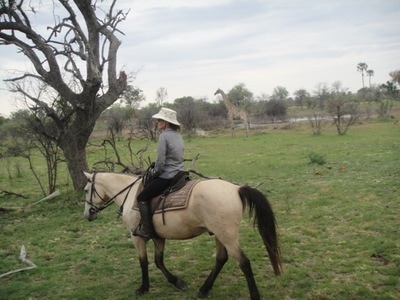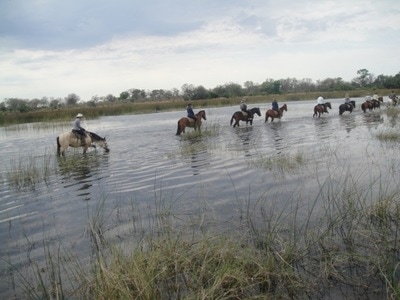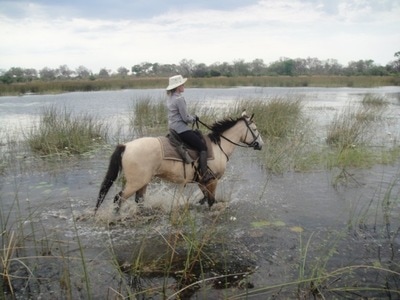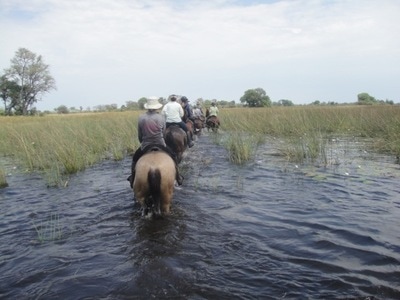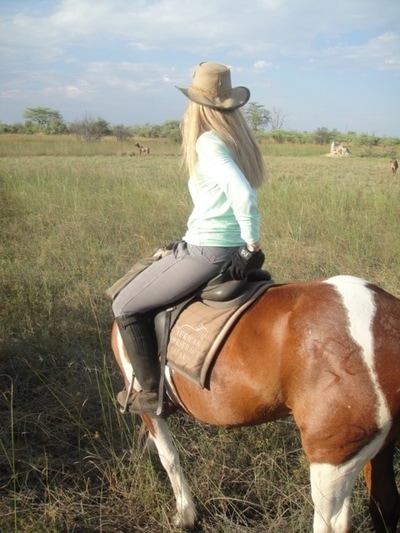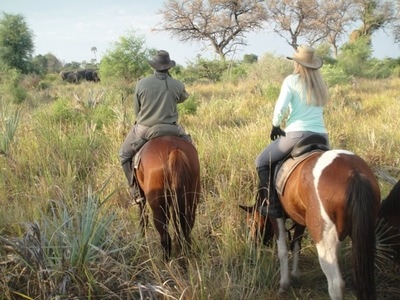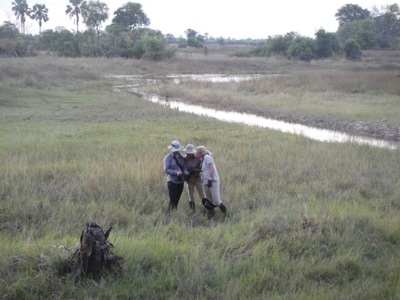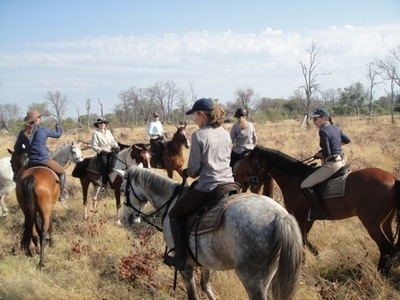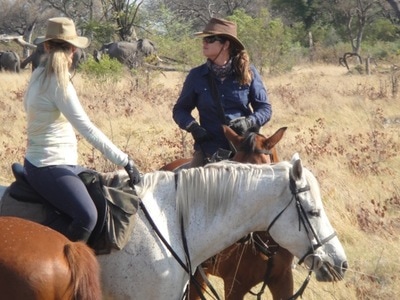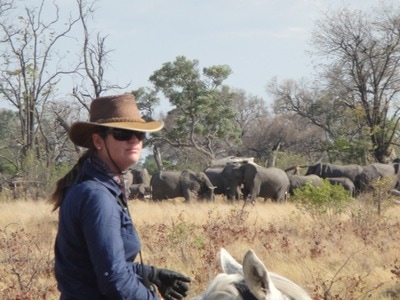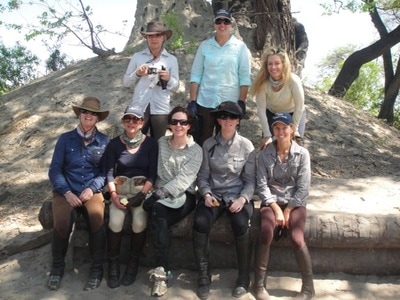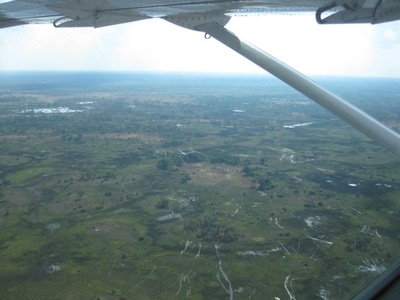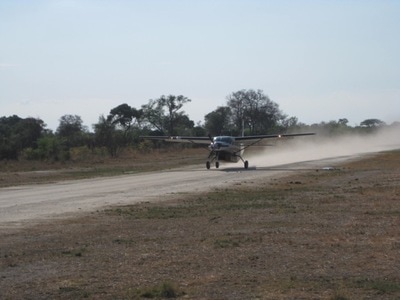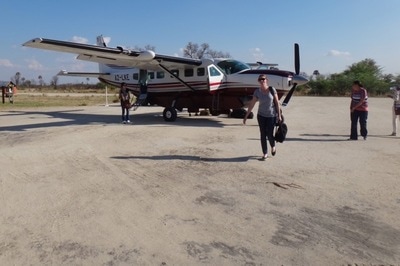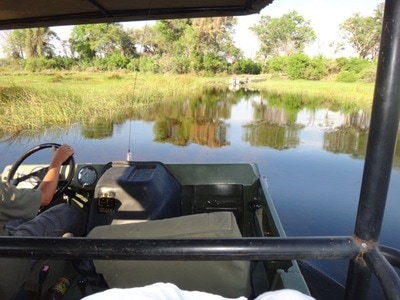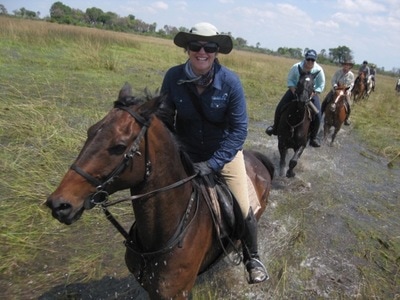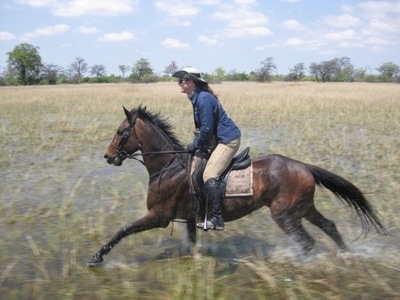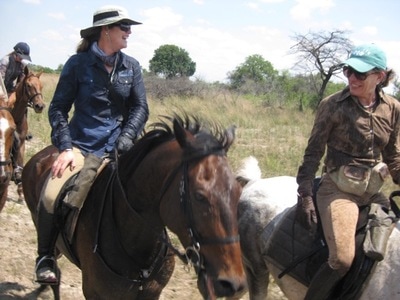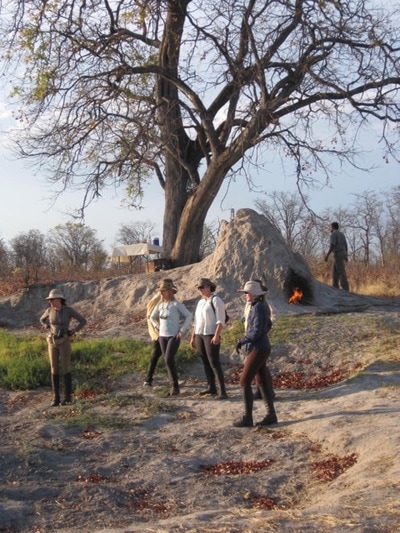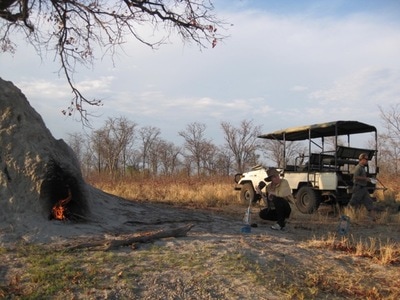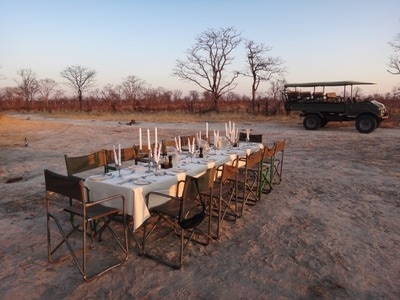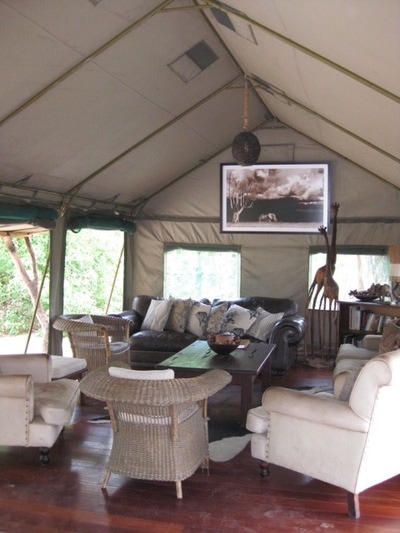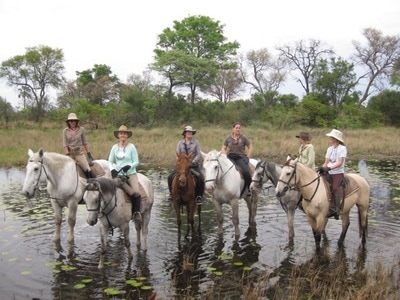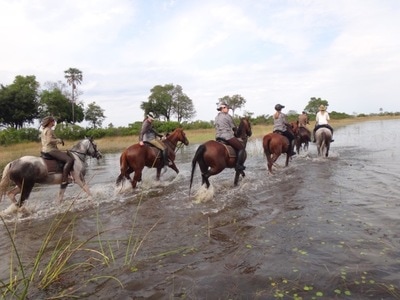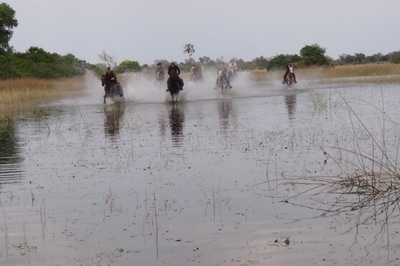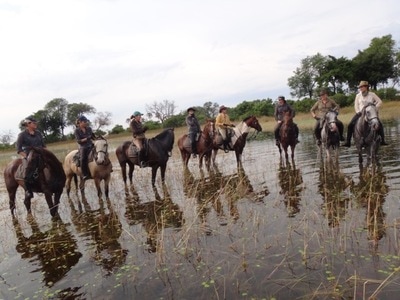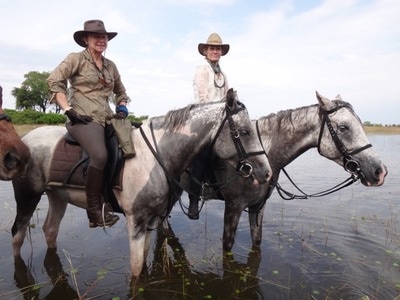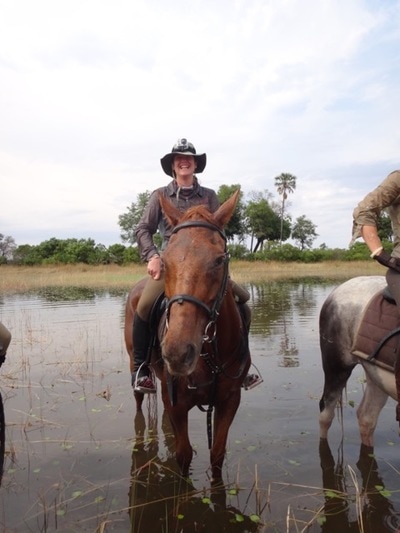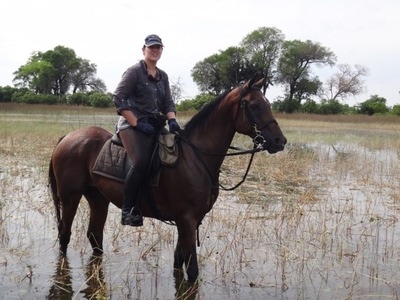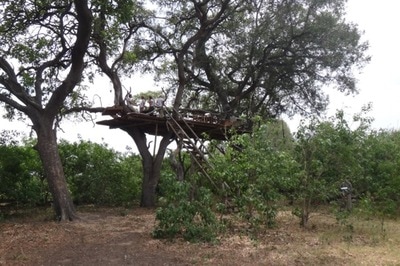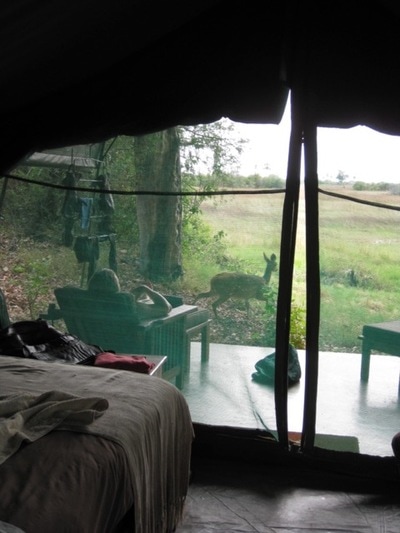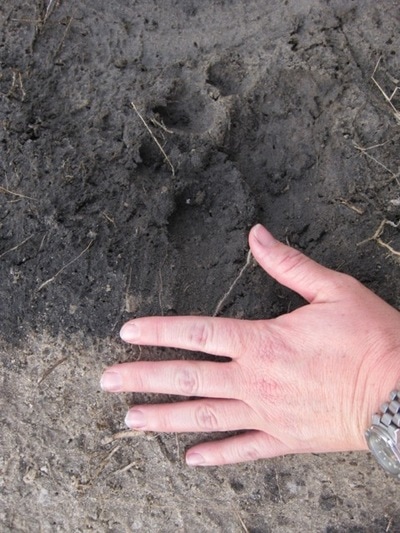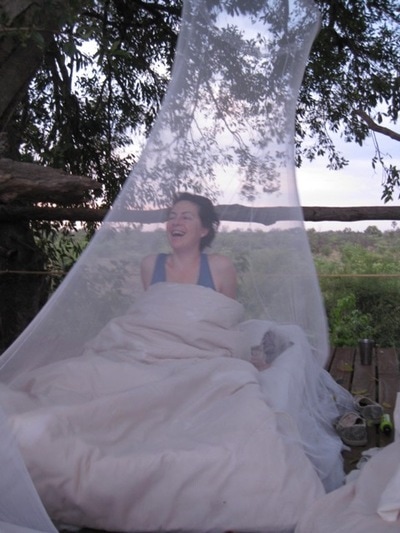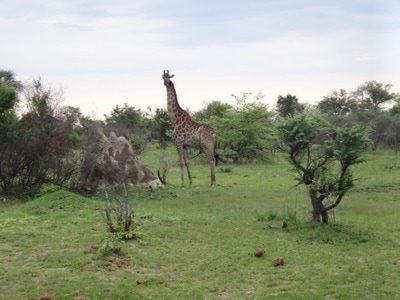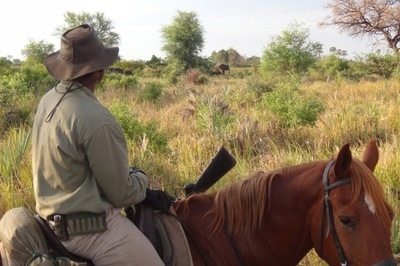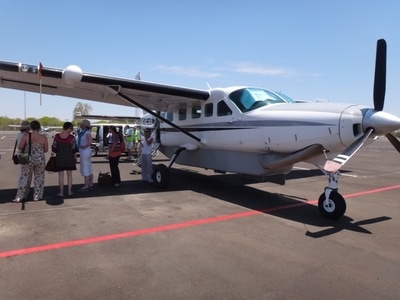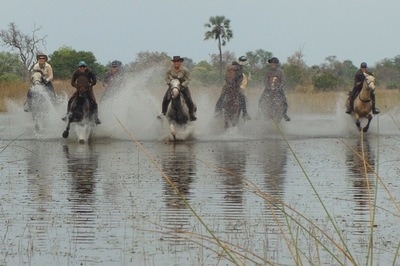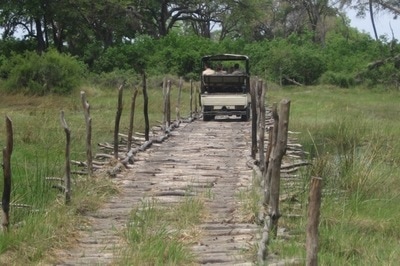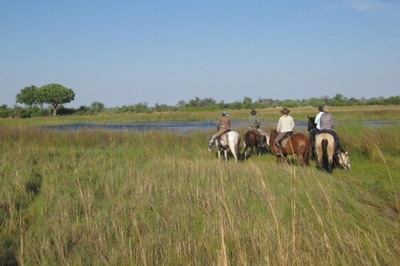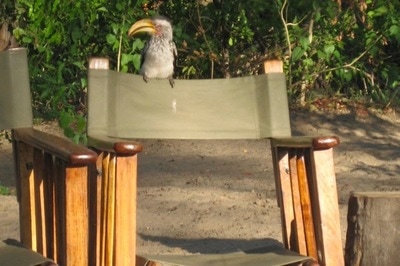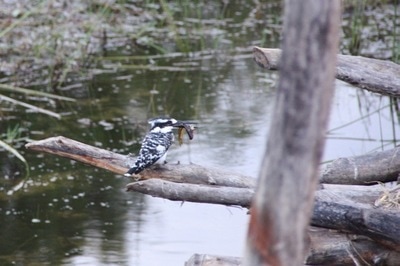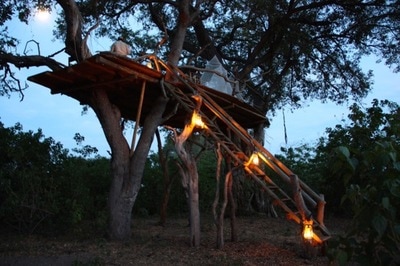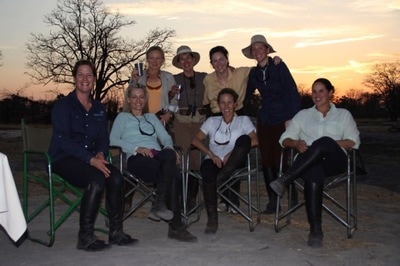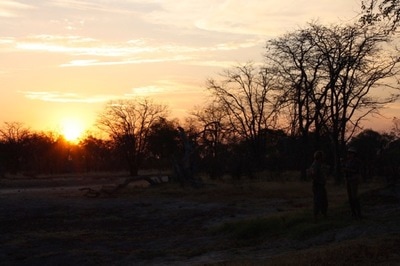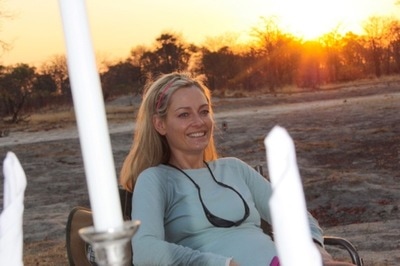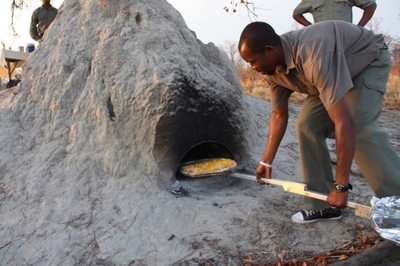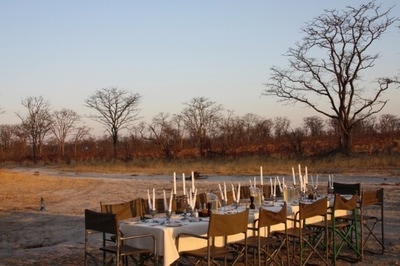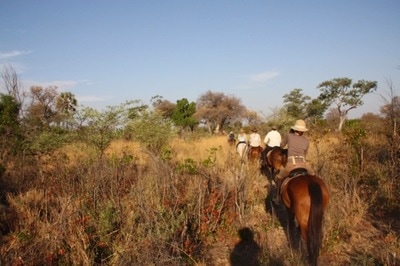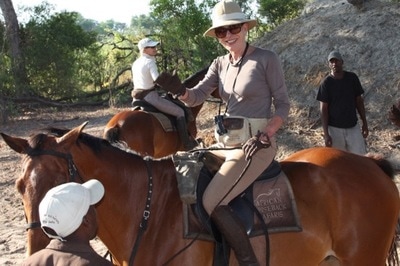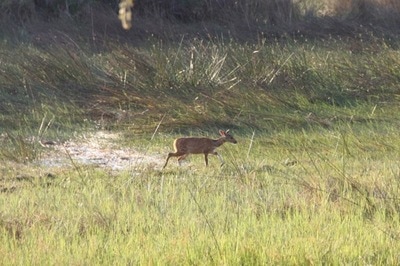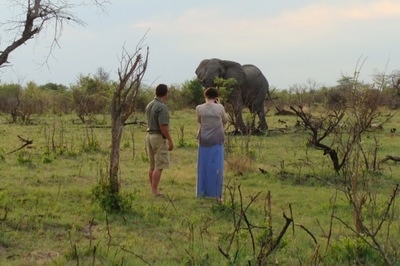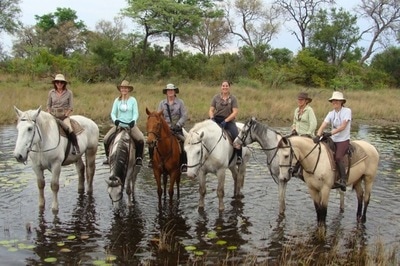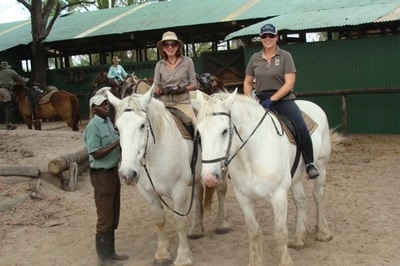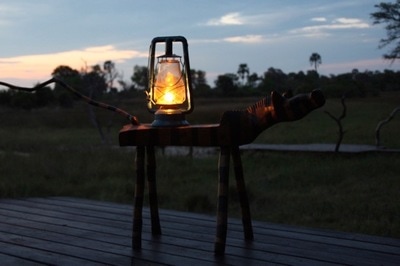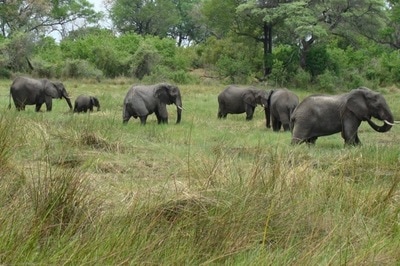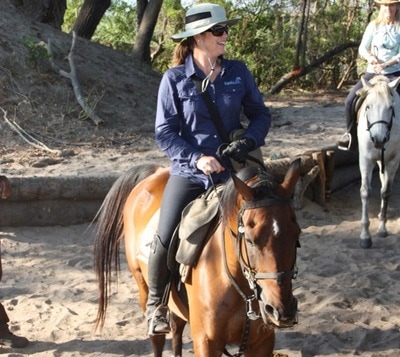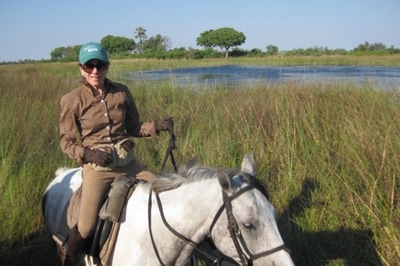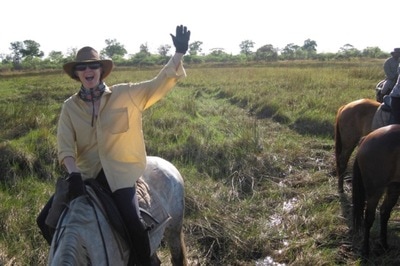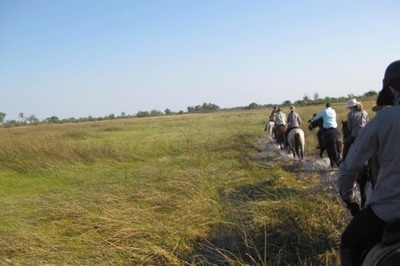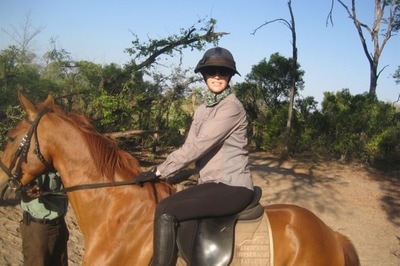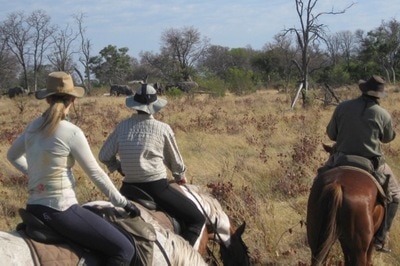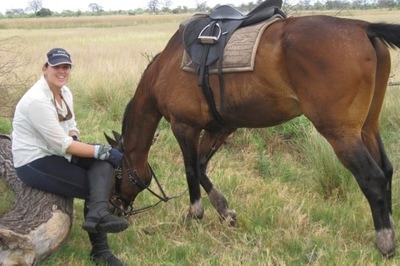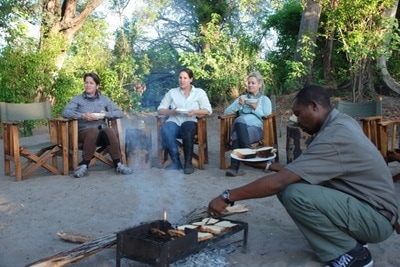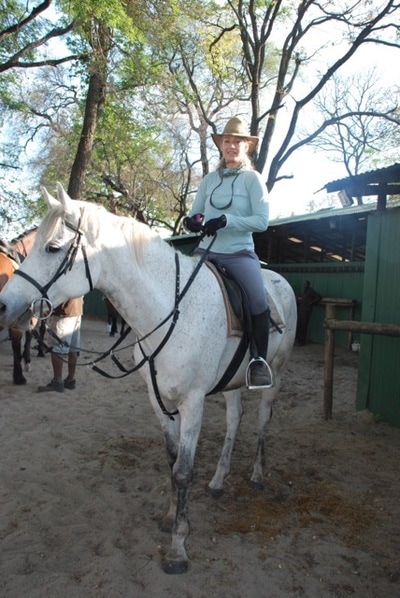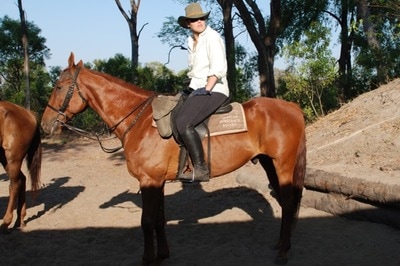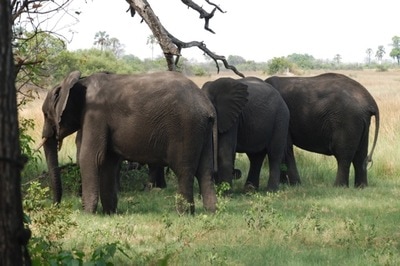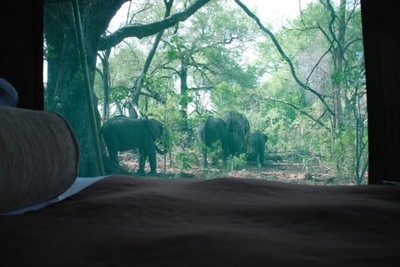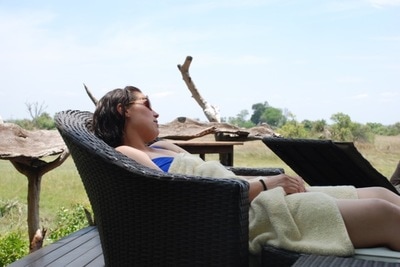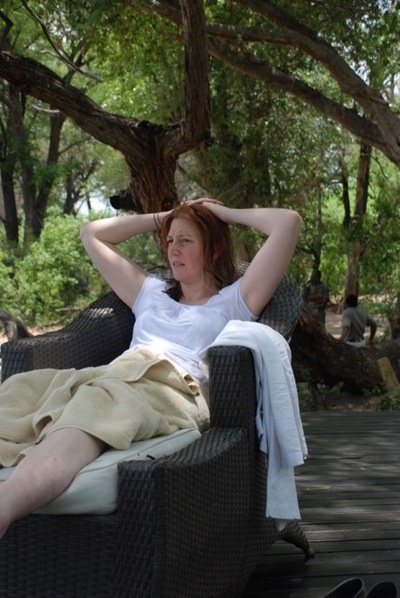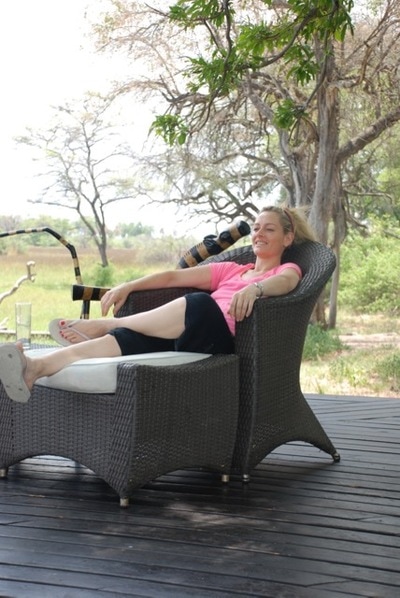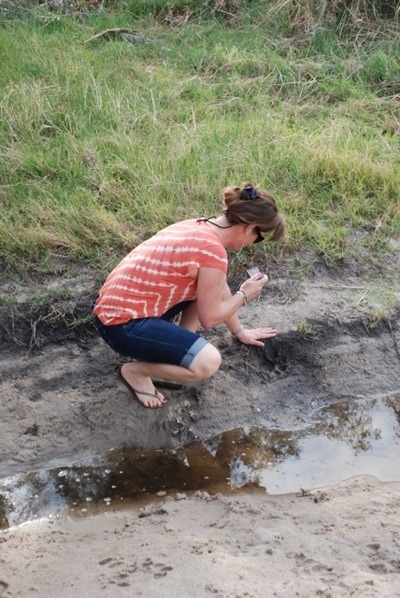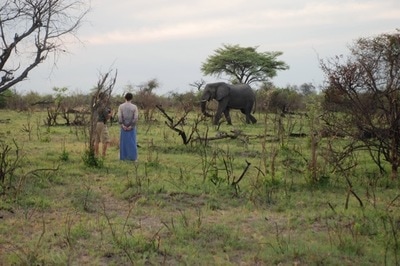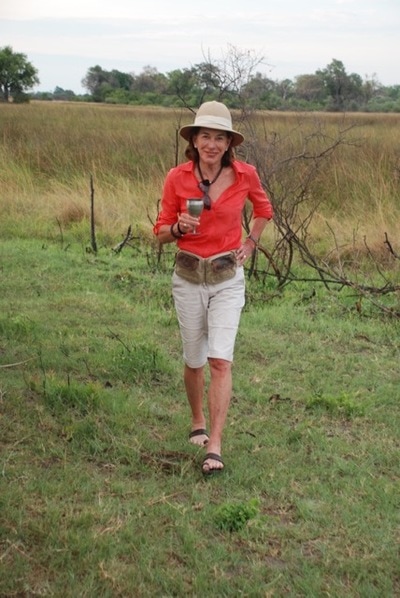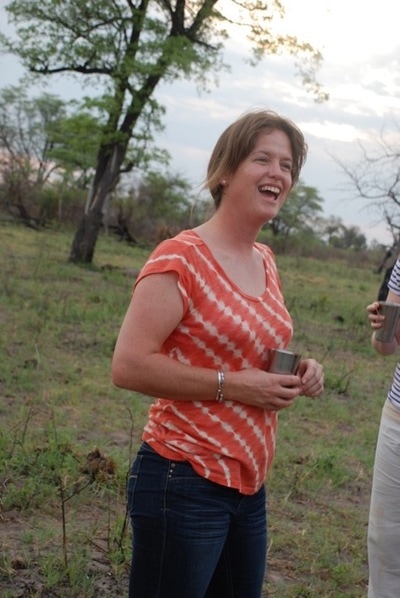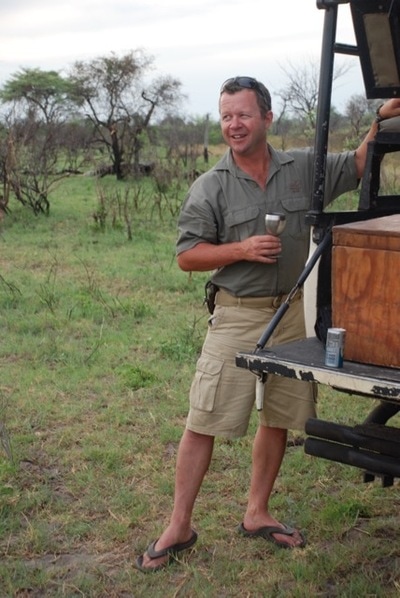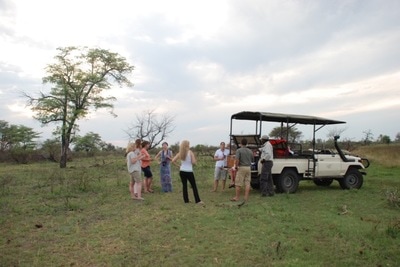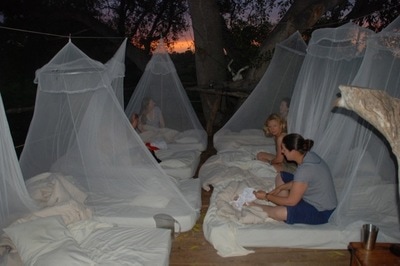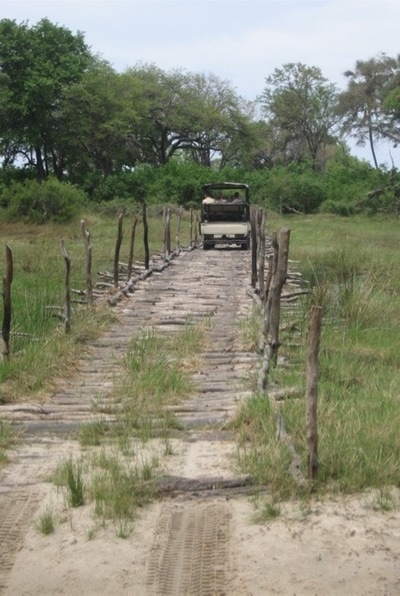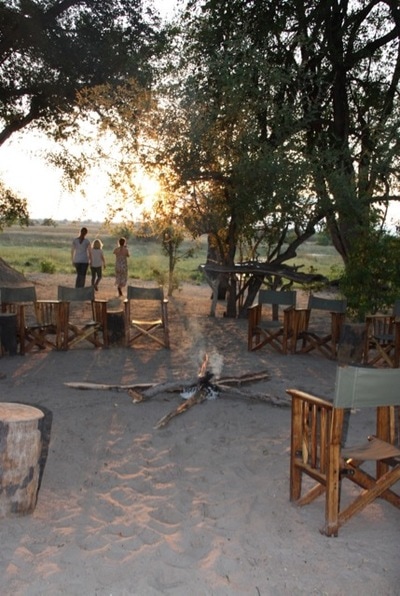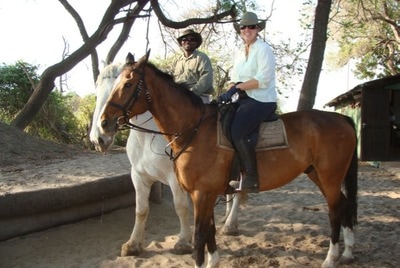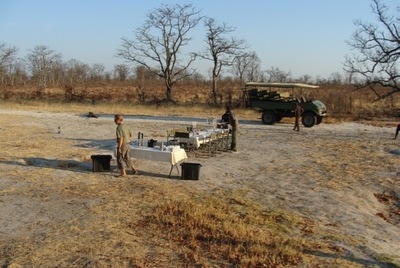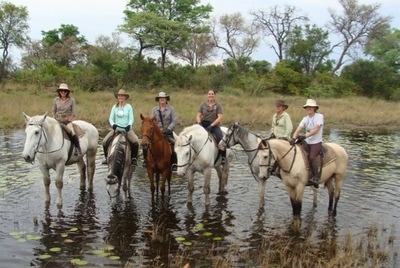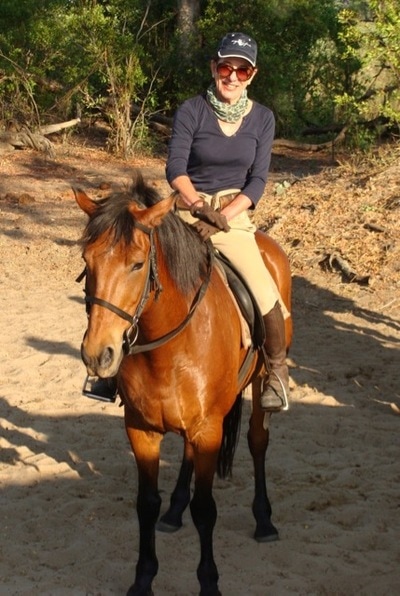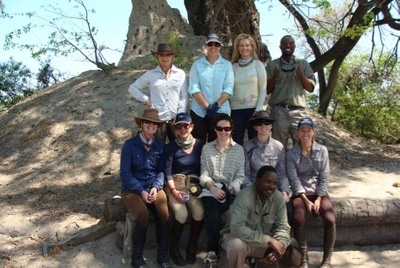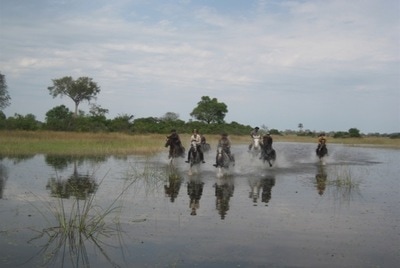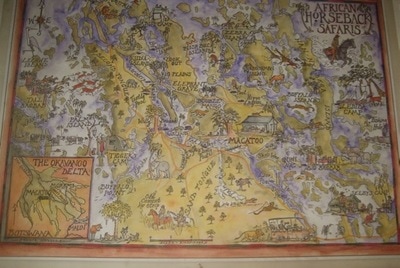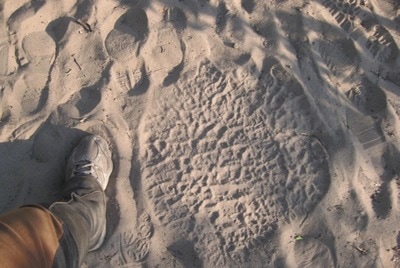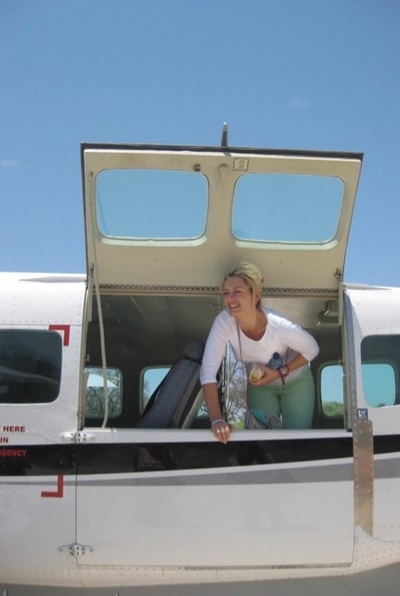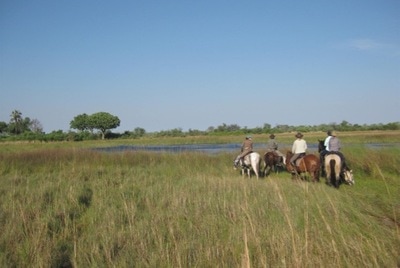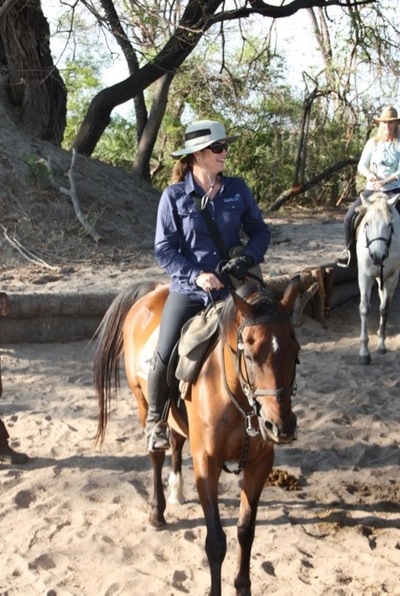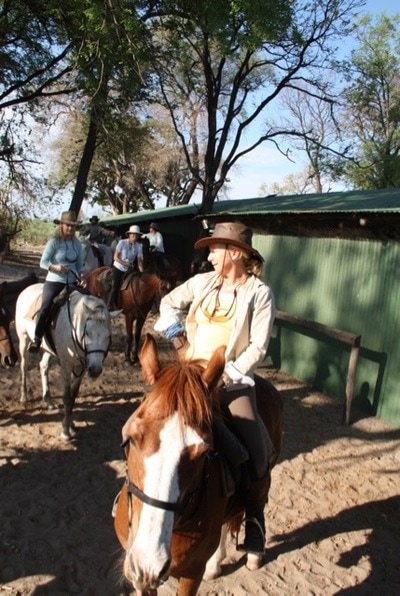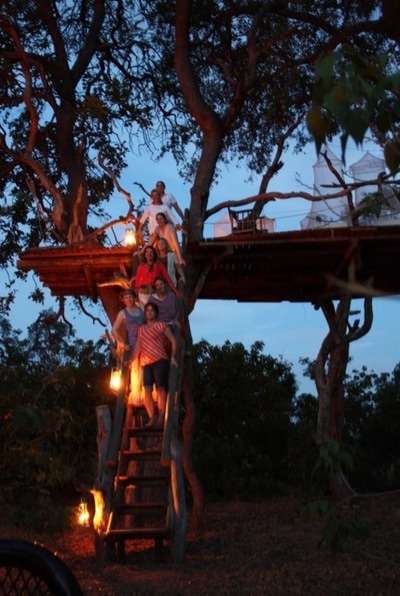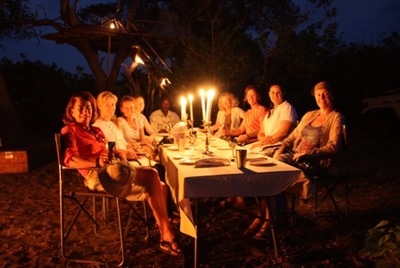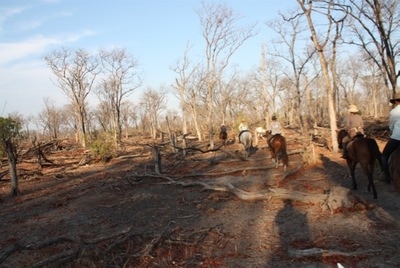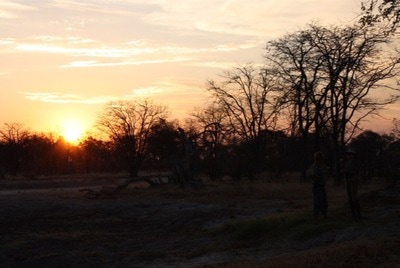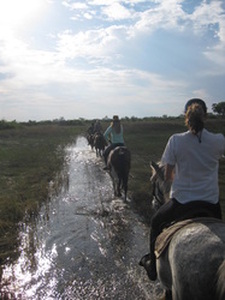 The day dawned clear, first of the year It seemed to us, boarding the bus To take us away with intentions to play in tributaries reaching far and wide where horses and animals move side by side. Across the plains, through woods and marshlands, water beneath us and then dry sand. Dry break beckons, with the haunting cry, of the giant fish eagle passing by And the francolin not to be outdone, let’s out a screech to say 'I've won.' That's where we were, without a care For five nights of bliss, not even a kiss from husbands at home and children and kids. As lions roared, the raptors soared. Giraffes showed us grace as we quickened the pace through thickets and trees and grass up to our knees. The waterways choked , we were all soaked - happiness is and happiness was. Elephants came, but never the same,some big some small, some with no tusks at all. ! They reigned supreme - the territory theirs, their destruction compares with lunar landscapes of pillage and rape. But nothing can shake the resolve that they make, We are here to stay, so get out of our way. The buffalos tried to quicken our ride 200 of them created a dust, that absorbed, encompassed, enthralled 8 of us. The youngsters protected, we all thundered by looking ahead to the horizon and sky. The zebras and wildes decided that day, to take a fast gallop and break away which saw us all, at the risk of a fall, turn sharp left and bolt Over terrain impossible to explain. The hours became days the days became nights No one wanted to put out the lights. The moon glowed brightly the sun burnt down the cicadas chirped - then there wasn't a sound. Random thoughts through the days will rebound, reassuring all we were really around, In our own piece of paradise giving a freedom the essence of which will remain with us all, through winter, spring, summer and fall. Oh Makatoo, we do salute you. This is established in one of two ways either by riders feel or by trainer’s observation. Usually if the rider asks this question it is because there has been a change in the way the horse is going or in the way the horse feels, this is often also noted by the trainer. The obvious signs to look out for would include:
* Horse not moving straight forward down long side of arena i.e. quarters in * The horse is unbalanced at the canter; he is ok on one rein but cannot strike off on the other, goes disunited or constantly changes legs. * Horse is unable to change diagonals fluently at the trot, from one circle to another. * The horse battle to walk down a hill in a straight line * Unable to bring the hind feet in line with the for feet * Rider may feel that he/she is sitting ‘down hill’ * Loss of contact with one side of the back under the riders’ seat bone. * The rider feels on stirrup is longer than the other when it isn’t. * The rider has a sore back after riding. All of the above are to be taken seriously, however a thorough examination is to be made to eliminate any other possible causes. I always make sure that my riders do take these signs seriously and that they do follow through with a thorough assessment. Ignoring these feelings often leads to a longer recovery period. And there is NO one in this world who knows your horse like you do. So DON’T ignore these feelings! Now that we have covered the physical feelings we can go on to the typical physical indications. I must note that most of these are only visible after extended periods of discomfort. These would include: * Uneven muscle development at the pole, shoulder or withers. * Loss of muscle behind shoulder or along back * Loss of hair anywhere under the weight bearing surface of the saddle. * Small raised patches often appearing in the saddle area. * Hollow patches in the long back muscles, from the size of a ten cent piece to the area covered by the palm of the hand. * Back muscle that is raised higher than the spinous processes * A difference in the height of the bones of the sacro-iliac joint – viewed from behind. * Difference in the profile of the gluteal muscles – viewed from behind. * A difference in the shape between the muscles on the inside of the hind legs, viewed from behind, when lifting the tail. The above are signs of over or under use of muscle. These MAY be caused by pain local to the area or be caused by a consequence of avoiding pain anywhere else along the back. They could be primary indications or secondary symptoms of compensation. By feeling the horses back you are looking for heat, a difference in muscle tone, and or a heightened sensitivity. The nerve endings are at approximately 5cm intervals all the way along the back. The horse SHOULD flex his back muscle slightly when these are activated. Intense twitching in any area of the back- sometimes before the hand has even made contact- should be regarded as an abnormal response. There seems to be an awful lot of misconception when it comes to understanding back pain and therefore expressions of pain can go unheeded until the horse develops a severe behaviour problem .i.e. We can understand and comprehend a sharp shooting pain. Our horses don’t understand it and therefore their reaction might be to run away from it as fast as possible or to just stand still and not move. He is then either labelled as a napper or as a horse that bolts. I am not saying for one minute that every horse that bolts or naps is doing so out of pain. All I am saying is try to always remain open to your horse’s actions and reactions! To find out more about your horses back and body- Dont miss our combined Chiro/Physio talk in April 2013  In October the Okavango Delta is getting dryer and it is very hot in the day but cools at night time. The game viewing is very good and our guide was even better-thank you Sekongo. Due to there being less water the optional extras such as game viewing from a canoe and fishing are not available. So perhaps not the best time of year for the not so avid horse riders. For those who can ride and want to ride hard and fast, this is the time of year for you to go to the Okavango. I would advise that you go with a group that you know, as being put together with people of equal riding ability is essential. Equiknow is only to happy to assist with this. I can happily say that this was the trip of a life time! "The air of heaven is that which passes through a horses ears" Arabian Proverb 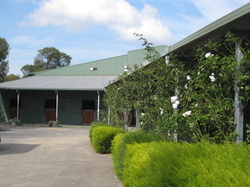 Dr Andrew Mclean has his PhD in Equine Cognition and learning, he has also competed for his country and spent many years as a professional trainer. He started the Australian Equine Behaviour Centre as well as being a founding member of ISES (International Society for Equitation Science) We left Cape Town on the 1st of April 2012 for Melbourne Australia. Our course was four days and very intensive as there were only four of us. We had two lessons a day-one group and one private. And then we had a theory session each evening. We where lucky enough to ride Grand Prix horses that had been trained by Dr Mclean and his team using his methods. The course was very relaxed and informal. We learnt a HUGE amount and had a fantastic time with Andrew and his team at the Australia Equine Behaviour center. This was an amazing trip full of laughter, galloping, game, friends and unforgettable experiences . Thank you Lynn Rowand, Sean Bottega, Maryna Shaker, Helene Kloots, Alayne Meinisz, Caro De Waal and Melody Burton Moore.
|
